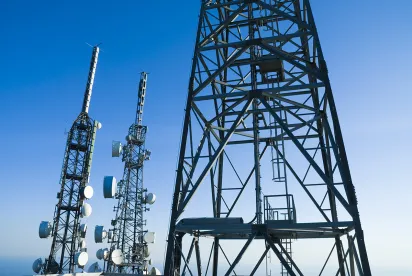Nelson Mullins’ communications lawyers provide this monthly download of FCC actions of interest and upcoming filing deadlines relevant to domestic and international communications services providers, federal Universal Service Fund participants and information service providers. These items are intended to assist readers in understanding trends in communications policy and to identify changes in law that may affect their businesses.
Trend of the Month: “Not Waiting for Five”
The Senate continues to consider the nomination of Gigi Sohn as the 5th Commissioner (creating a Democratic majority), but Chairwoman Rosenworcel is moving some significant policy initiatives forward even without a controlling majority. For example, there is a clear consensus among the Commissioners on network security. In March and April, the Commission updated the list of prohibited devices on the Covered List, acted against two additional Chinese-linked telecommunication companies and issued a Notice of Inquiry on secure internet routing. In addition, the FCC is increasingly becoming more active on cybersecurity matters involving telecommunications services as Chairwoman Rosenworcel chairs the intergovernmental Cybersecurity Forum and held its first meeting in April. Further, comments have been received on proposals to implement an E-rate competitive bidding proposal and to modify CPNI breach reporting requirements. With mandated reports on the Future of the USF and robocalls this Fall, as well as expected completion of FCC coverage maps in that time frame, we expect the pace to pick up markedly over the summer.
FCC Open Meeting
April 21, 2022 Open Meeting Notes:
-
Improving Receiver Performance – The Commission opened an NPRM seeking comments on the efficient use of spectrum through improved receiver interference immunity performance, thereby facilitating the introduction of new and innovative services. (ET Docket No. 22-137)
-
Wireless Emergency Alerts – The Commission adopted a Further Notice of Proposed Rulemaking seeking comment on proposals to strengthen the effectiveness of Wireless Emergency Alerts, including through public reporting on the reliability, speed, and accuracy of these alerts. (PS Docket Nos. 15-91, 15-94)
May 19, 2022 Preview:
-
The FCC released a tentative agenda for its May 2022 meeting with five items scheduled. The meeting is highlighted by a report and order and further notice relating to the obligations of international gateway providers to combat and reduce illegal robocalls. Also on the agenda are a rulemaking to propose modifications to its ACAM cost model for the high-cost USF fund, a report and order updating its rules for prioritizing the restoration of telecommunications services in outages and natural disasters, a report and order regarding permitting computer modeling to verify the directional pattern of FM antennas, and an enforcement item (the content of which is not disclosed in advance). The tentative agenda and draft items are available here.
USF Corner:
-
USAC holds April 2022 quarterly board meeting. During the meeting, USAC released 8 E-rate audits, 2 High-Cost audits, 1 Lifeline audit and 4 Rural HealthCare audits. The audit division also reported plans to initiate 20 new BCAP audits and 10 supply chain audits in the second quarter. USAC’s board received an update on implementation of the Connected Care Pilot Program. USAC reported that it had received 32 funding requests so far and approved $5 million in funding, but that funding requests were not due until September 2022.
-
WCB denies BA Telecom USF appeal (contributions). The Bureau affirmed USAC’s obligation to consider the revenues of all affiliated providers when calculating the LIRE exception for international revenues. Order here.
-
FCC grants a 60-day waiver of the ACP non-usage rules. The Commission granted a 60-day waiver of the Lifeline-style non-usage rules scheduled to take effect for the Affordable Connectivity Program, finding that certain providers need additional time to deploy systems to track usage in accordance with the rules. However, during the waiver, the EBB non-usage rules (which prohibit claims in a given month for subscribers who have not used their service in the month) apply. Order here.
-
WCB remands systems integrator appeals to USAC. In response to two USF appeals from systems integrators, the Bureau clarified that the systems integrator exception applies only if the integrator derives less than five percent of its systems integration revenues (not total revenues) from the provision of telecommunications services. It also noted that systems integrators are obligated to pay TRS if they offer VoIP services, even if they are exempt from USF contribution obligations. The Bureau found insufficient evidence to determine if the two petitioners qualified for the exception and remanded the matters to USAC for further fact-finding. Order here.
-
FCC commits more ECF funding, opens third application window. The FCC announced that it had committed $37 million in the 13th wave of Emergency Connectivity Fund program support, helping to close the Homework Gap. In addition, the FCC opened a third application window for ECF funding, for services to be delivered or received in the upcoming school year. This funding window closes on May 13, 2022. Order here.
Enforcement Corner
-
TracFone settles Lifeline investigation. The FCC and DOJ settled investigations into allegations that TracFone impermissibly signed up more than 175,000 subscribers who were ineligible for the program. TracFone agreed to return $10.9 million in USF payments and to pay a fine of $2.5 million to resolve the investigation and related qui tam lawsuit. More here.
-
Windstream settles Rural Healthcare investigation. The FCC reached a settlement with Windstream to resolve an investigation into the company’s practices for determining rural rates and retention of Rural Health Care Program (RHC) documents. Windstream agreed to return $1 million in improper payments and to pay a $200,000 fine. Order here.
-
FCC revokes 214 authority of two more Chinese-affiliated carriers. At its March open meeting, the FCC, in a unanimous vote, revoked the section 214 authorizations to provide domestic and international telecommunications services of Pacific Networks Corp. and its subsidiary, ComNet (USA), LLC. As with China Telecom Americas and China Unicom, the Commission found that the providers posed significant national security and law enforcement risks due to their ownership and control by Chinese state-owned entities. The Commission ordered both companies to discontinue services within 60 days of the order. Order here.
-
EB proposes $75K fine for failing to provide data upon USAC request. The Enforcement Bureau proposed a $75,000 fine for a Louisiana telecommunications provider for failing to respond to USAC requests for information to verify the accuracy of Correct Solutions’ 2019 and 2020 Annual Worksheets. Correct Solutions allegedly failed to respond, or submitted non-responsive documents and late responses, over the course of a one-year period. Notice here.
Upcoming Filings and Comments
-
May 1, 2022. The Form 499-Q filing reporting revenue for January 1 through March 31 of 2022 and projected revenues for July 1 through September 30 of 2022 is by May 1, 2022. Revisions are to be submitted 45-days prior to the deadline filing date. Carriers and providers who are not required to contribute directly to the universal service support mechanisms do not have to submit the Form 499-Q.
-
May 1, 2022. Section 64.1900 Geographic Rate Averaging Certification is due by May 1, 2022.
-
May 5, 2022. Providers of advanced communications services are required to report on the usage of covered communications devices or services by May 5, 2022.
-
May 13, 2022. The deadline for individuals, non-governmental entities, and governmental entities, to begin the participation process in the Eligible Locations Adjustment Process (ELAP) has been extended to Friday, May 13, 2022.
-
May 16, 2022. Reply Comments regarding the Further Notice of Proposed Rulemaking (FCC 22-15) for the Commission’s Rural Health Care (RHC) are due by May 16, 2022.
-
May 27, 2022. The FCC extended comment and reply dates regarding the E-rate competitive bidding proposal. Reply comments are now due by May 27, 2022.
In addition, regulated entities are reminded that certain filings are triggered by outside events involving the entity. Among these are (a) pro forma assignments and transfers, (b) changes in FCC Form 499 information, including officers, directors, and contact persons, (c) changes in robocall mitigation plans, and (d) cessation of the provision of telecommunications services. If any of these changes have occurred, please contact us for assistance.
Other News
-
FCC Expands List of Equipment and Services That Pose Security Threat. On March 25, 2022, the FCC updated its Covered List, identifying of equipment and services that have been deemed a threat to national security, consistent with requirements in the Secure and Trusted Communications Networks Act of 2019. This action added three entities, including China Telecom (Americas) and China Mobile to the Covered List. Carriers receiving federal USF funding are prohibited from using the funding to acquire or maintain equipment and services from these entities. See the Nelson Mullins Advisory here.
-
FCC holds second hearing on broadband consumer labels. Recorded hearing here.
-
FCC Chair asks Congress for more authority over robocalls, after Facebook v. Duguid ruling. In responses to Congressional inquiries and at the April 1 House Subcommittee on Communications and Technology hearing, FCC chairwoman Jessica Rosenworcel asked Congress to grant “additional authority” over robocalls in light of the Supreme Court’s narrowing of the auto dialer definition last term. More here.
-
FCC increases partnerships with state AGs to pursue illegal robocallers; Chair pledges to enter into agreements with every state. FCC Chairwoman Jessica Rosenworcel announced five additional agreements with state Attorneys General to cooperate in robocall investigations. The states signed Memoranda of Understanding with the FCC’s Enforcement Bureau allowing the Bureau to share certain information regarding alleged robocallers, including industry traceback information. Chairwoman Rosenworcel also reached out to the remaining states to invite them to establish their own bi-lateral robocall investigation partnerships. More here.
-
CGB provides guidance on Reassigned Number Database, modifies fees. The FCC announced that its Consumer and Governmental Affairs Bureau had established a modified fee structure for users of the new Reassigned Number Database (RND), which is designed to assist call originators in determining whether a phone number is still associated with the subscriber from whom the caller received consent. The new fee structure increases the number of rate options and, according to the Commission, will lower prices for most users. The Bureau also clarified that call originators remain subject to the safe harbor liability protection even if they receive RND information through an agent rather than directly. Notice here.
-
PSHSB issues warning regarding UPS device security. The Bureau issued a public notice encouraging communications companies that use uninterruptable power supply (UPS) devices as either a primary or backup power source to review the Joint Cybersecurity Advisory (Cybersecurity and Infrastructure Security Agency (CISA) and Department of Energy (DOE)), Mitigating Attacks Against Uninterruptible Power Supply Devices. This is the latest in a series of cybersecurity warnings that the Commission has issued to communications service providers. Public notice here.







 />i
/>i

